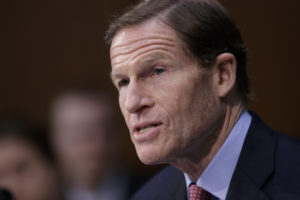I hereby declare that I have had it up to here with all these speeches about Judge Brett Kavanaugh and his confirmation to the U.S. Supreme Court.
Where is “here”? Name it: my eyeballs, my armpits, the top of my noggin. Or, you can say “here” is my chinny-chin-chin.
We know what U.S. Senate Republicans think of Kavanaugh. They think he’s the best thing to happen to jurisprudence since pockets on shirts. Democrats believe the accusation that he sexually assaulted at least one woman in the 1980s and don’t want him anywhere near the highest court in the land.
Yet many of the 100 men and women who comprise the Senate are orating their pleasure/displeasure about the confirmation vote.
Spare me, ladies and gentlemen. Indeed, spare the rest of the country. We’ve heard it already. Multiple times! You’ve repeated yourselves.
Actually, all I’m hearing now is the equivalent of white noise.
Blah, blah, blah … and some more blah, blah.
Kavanaugh isn’t my idea of a good choice for the Supreme Court. Then again, I have no direct say in who Donald J. Trump appoints to these posts. The president won’t listen to me. For that matter, he doesn’t listen to damn near anyone, believing that since he is the president of the United States, he is entitled to make whatever decision he feels like making.
True enough.
In the meantime, the Senate’s 100 members need to stop talking now about things we’ve heard already.





